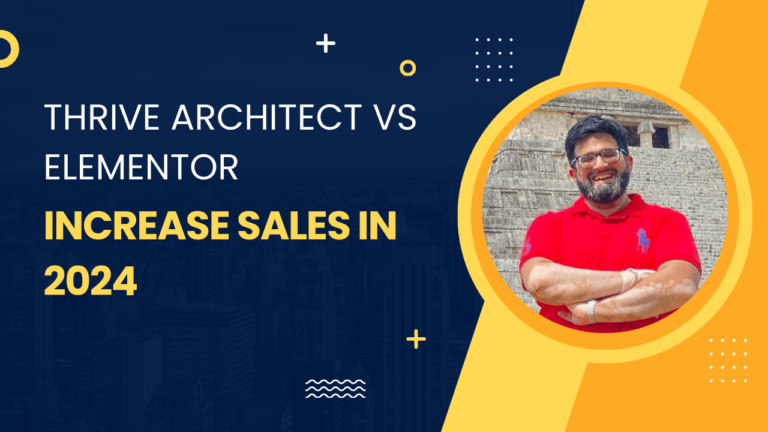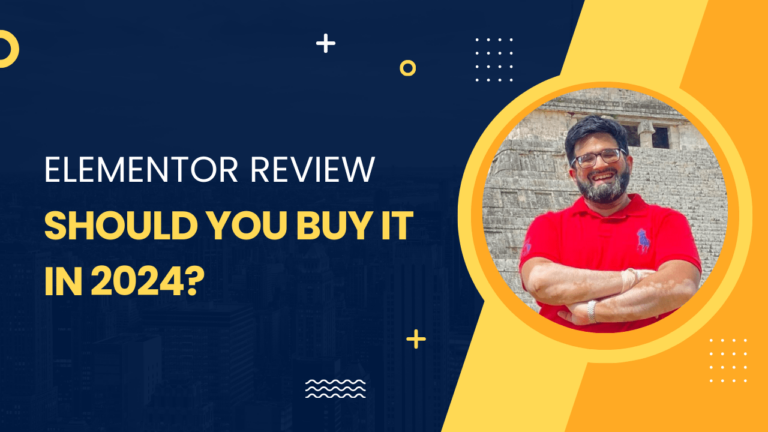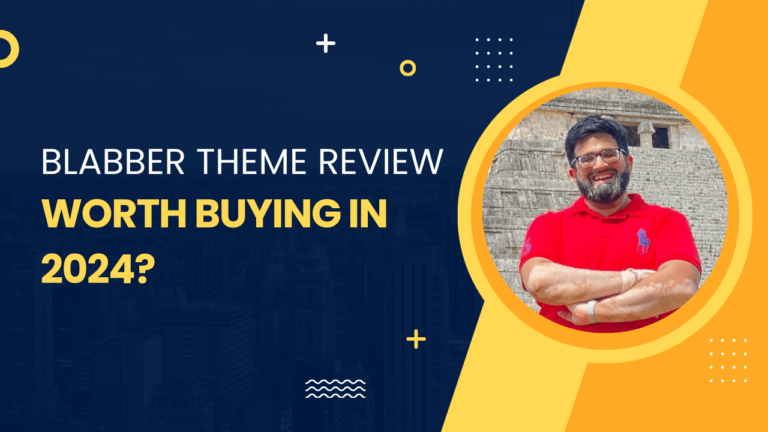Elementor vs Divi: An Honest Review [Updated 2024]
When you’re building your WordPress site, selecting the right page builder can streamline your workflow and enhance your site’s functionality. Divi and Elementor are two leading WordPress page builders, both offering a drag-and-drop interface that allows you to create custom layouts without needing to dive into the code.
Divi comes from Elegant Themes and provides a plethora of ready-to-use templates. It gives you unlimited website usage with its licensing options. It’s known for its built-in A/B testing tool and an extensive range of features straight out of the box.
On the other hand, Elementor is renowned for its ease of use and flexibility. It has a significant edge with its free version, allowing you to explore the basics before committing financially. Elementor Pro expands on this with advanced widgets and capabilities for a more nuanced website design.
Here’s how they compare at a glance:
| Feature | Divi | Elementor |
|---|---|---|
| Pricing | Starts at $89/year (or $249 for lifetime access) | Free version available, Pro starts at $49/year |
| Ease of Use | Steeper learning curve | More intuitive for beginners |
| Templates | 350+ built-in templates | Numerous templates compatible with many themes |
When considering Divi vs. Elementor, remember that while Divi might be cost-effective for multiple websites, Elementor can be more budget-friendly if you’re starting with just one site. Both page builders are powerful tools, yet your choice should be informed by your specific needs—be it the learning curve, pricing considerations, or the range of design options.
Key Differences
When evaluating Divi and Elementor, the distinctions you’ll encounter revolve around their approach to user interface, customization capabilities, and overall usability. These differences are critical in deciding which page builder aligns best with your website design needs.
User Interface
Elementor offers a front-end drag-and-drop interface with a left-hand side panel for tools and options, giving you a live preview of your site as you make changes. Divi, on the other hand, provides a visual builder that’s both a front-end and a back-end builder, employing a more click-to-edit approach.
Customization and Styling Options
Elementor supports detailed customization with a wide range of styling options, including margins, padding, and animation effects, directly accessible from the editing pane. Divi allows extensive styling as well, but you’ll frequently engage with pop-up windows for settings, which may influence your workflow speed.
Modules and Widgets
Both builders offer an array of modules and widgets to add functionality to your pages. Elementor has more than 90 widgets, while Divi offers over 40 content modules, which can sometimes require additional customization to achieve the desired outcome.
Page Builder Features
Elementor provides powerful features such as custom CSS for individual widgets and full website kits for cohesive design. Divi’s features include inline text editing and an extensive range of content elements, though it might require more exploration to use some advanced features.
Template Libraries
Elementor shines with its extensive library of pre-designed templates and blocks that save you time. Divi also offers a rich array of templates, yet the variety and modern design of Elementor’s templates often stand out to users as more compelling.
Performance
Speed is a concern when using page builders. Elementor is known for producing lightweight pages that load faster, although performance can vary based on additional plugins and content complexity. Divi has improved performance over the years but may require optimization to keep page loading times down.
Pricing and Plans
Elementor offers a free version with basic widgets and features, which is a significant plus for cost-conscious users. Divi doesn’t provide a free version, but its lifetime plan can be economical in the long run if you’re building multiple websites.
Community and Support
Both have strong communities. Elementor’s community is active with extensive tutorial content available. Divi’s community is equally robust, backed by elegant themes with good customer support. Your preference might depend on the type of community engagement or support style you’re looking for.
Ease of Use
In evaluating Divi and Elementor for their ease of use, your experience will significantly depend on aspects like drag-and-drop functionality, inline editing, and the ability to preview changes live. Each has been designed with user-friendliness in mind to cater to both beginners and experienced users alike.
Drag-and-Drop Functionality
Both Divi and Elementor offer a drag-and-drop visual builder, allowing you to easily add, move, and arrange elements on your website. Divi provides an intuitive interface that makes it simple to organize your website’s layout and structure. Elementor also boasts a robust drag-and-drop tool, with the flexibility to position and style elements with precision.
Inline Editing Options
With inline editing, you can click on any text element on your page and start typing right away. Elementor excels in this area, providing you with a streamlined experience as you edit text directly on the page with real-time results. Divi also supports inline text editing, ensuring you can make quick changes without switching back and forth to a separate options panel.
Live Previews
Both builders feature live preview capabilities, letting you see your changes as you make them. This frontend visual builder approach allows for immediate feedback, enhancing the user-friendliness of the page building process. You’ll find that both Divi and Elementor enable you to view your design adjustments in real-time, giving you confidence that what you see is what your visitors will get.
Design Capabilities
In the world of WordPress page builders, design capability encompasses the range of tools available for crafting your site’s layout and aesthetic. Both Elementor and Divi equip you with extensive features for page layouts, customization, and responsive controls, tailored to enable a seamless design process.
Page Layouts and Section Management
With Elementor, you have granular control over your page layouts with a variety of sections and widgets, which can be adjusted with simple drag-and-drop actions. Layout packs are readily available, offering pre-designed templates that cater to various industries and niches, streamlining the design phase.
Divi operates on a similar drag-and-drop interface, giving you the power to tweak sections and rows extensively. It boasts a substantial library of layout packs that seamlessly integrate with your website’s design, encouraging consistency and saving you time.
Template Customization
Template customization in Elementor is robust, allowing you to tailor templates to your specific needs. You can easily apply global styles and design elements, ensuring a uniform look across your website. Customization with Divi is just as intuitive, emphasizing the ability to create custom templates and use global presets for a cohesive appearance.
- Elementor: Incorporates templates and design blocks that can be personalized, maintaining design consistency with global styling settings.
- Divi: Offers a wide range of templates with customization options that emphasize the adjustment of design elements and global styles.
Responsive Design Control
Responsive design is vital for your website to function across different devices. Elementor shines with responsive editing capabilities, permitting you to preview and adjust settings like margins and paddings for tablets, phones, and desktops. You adopt a mobile-first design approach, ensuring your website is versatile and user-friendly on any device.
Similarly, Divi provides responsive editing tools, allowing you to customize how your site looks and performs on various screens. With Divi, you can make detailed changes that resonate with a mobile-centric audience, contributing to a superior browsing experience.
- Elementor: Utilizes device-specific responsive settings to let you craft a responsive design efficiently.
- Divi: Offers comprehensive responsive design features, ensuring your site is compatible and navigable on all platforms.
Advanced Features
When exploring advanced features, your focus may be on how the tools integrate with WordPress themes, enhance e-commerce sites, and handle dynamic content. Here’s a snapshot of how Divi and Elementor cater to these sophisticated needs.
Theme Builder Integration
Elementor’s Pro version boasts a powerful theme builder, granting you the flexibility to design headers, footers, and other site parts without restriction. Divi also offers extensive theme building capabilities, allowing for a high degree of customization across your website. Both builders integrate seamlessly with a wide array of WordPress themes, ensuring that you can tailor your site’s design to fit your vision perfectly.
WooCommerce Support
For those running an online store, WooCommerce support is crucial. Elementor stands out with its dedicated WooCommerce Builder in the Pro version, enabling you to create custom product pages and streamline your sales process. Divi matches this with its own set of WooCommerce modules, allowing for the enhancement of your store’s customer experience through attractively designed product pages and categories.
Dynamic Content Options
Dynamic content is at the heart of a personalized user experience. Elementor and Divi both deliver in this category. With dynamic content capabilities, Elementor allows you to include content that updates based on user interaction or database changes. Similarly, Divi provides options to dynamically source content from your site and automatically populate templates with it. This includes pulling data directly from custom fields and taxonomies to create a highly tailored user experience across your entire site.
Flexibility for Developers
When assessing Elementor and Divi in terms of developer flexibility, it’s vital to consider the extent of customization and coding capabilities they offer. With both page builders, you have the freedom to use custom CSS, allowing for a deeper level of styling than what can be achieved with standard builder features.
- Elementor: Offers a distinct area to add custom CSS directly to individual elements, and if you possess advanced coding skills, you’re not limited by the confines of a visual interface. Elementor’s code is structured in a way that is friendly to developers, facilitating easier HTML requests and interactions.
- Divi: This builder gives you the option to apply custom CSS globally or on a per-module basis. For those comfortable with HTML and CSS, Divi places no barriers on your coding capabilities.
For Plugin Integration:
- With Elementor, you will find an extensive range of third-party plugin integrations, allowing for expansive growth and scalability of your projects.
- Divi also supports a wide array of WordPress plugins, but users have noted that certain plugins may require more tweaking to work seamlessly with Divi.
Regarding customization:
- Elementor provides a more granulated control with its visual builder that quickly responds to changes, which can be highly time-efficient for developers.
- Divi offers extensive customization options, but changes can occasionally be slow to preview, which might impact your workflow.
| Features | Elementor | Divi |
|---|---|---|
| Custom CSS | Direct per-element addition | Global or per-module addition |
| Plugin Support | Extensive third-party plugins | Wide plugin compatibility |
| Coding Required | Minimal to none | Minimal to none |
| Customization | Granular control | In-depth customization |
In summary, your preference between Elementor and Divi may hinge on your specific workflow needs, project scope, and familiarity with coding practices. Both offer an impressive range of flexibility, but with some nuances in their approach to process and performance.
Licensing Options
![Elementor vs Divi: An Honest Review [Updated 2024] 1 Elementor vs Divi](https://koala.sh/api/image/v2-3s810-gcfkh.jpg?width=1216&height=832&dream)
When considering the licensing options for Divi and Elementor Pro, your budget and long-term planning play a significant role. Let’s break down what each offers.
Divi, offered by Elegant Themes, provides two straightforward pricing plans:
- Yearly Access: Provides all Elegant Themes and plugins, updates, and premium support for one year.
- Lifetime Access: A one-time payment grants you lifetime access to all themes and plugins, updates, and support.
| Divi Licensing Options | Yearly Access | Lifetime Access |
|---|---|---|
| Themes & Plugins | All | All |
| Updates | 1 year | Lifetime |
| Support | 1 year | Lifetime |
| Price | Annual Fee | One-time Fee |
Elementor Pro, on the other hand, operates on an annual subscription basis with multiple tiers, each supporting a different number of sites:
- Personal: Use on one site.
- Plus: Use on three sites.
- Expert: Use on 25 sites.
Each tier includes access to all pro widgets and templates, updates, and support for the duration of the subscription.
| Elementor Pro Licensing | Personal | Plus | Expert |
|---|---|---|---|
| Sites Supported | 1 | 3 | 25 |
| Pro Widgets and Templates | All | All | All |
| Updates & Support | 1 year | 1 year | 1 year |
| Price | Annual Fee | Annual Fee | Annual Fee |
Remember, Elementor Pro requires an annual renewal to continue receiving updates and support, whereas Divi offers a lifetime option for a one-time cost, potentially leading to savings in the long run. Choose the licensing model that suits your workflow and financial preferences.
Extensions and Integrations
![Elementor vs Divi: An Honest Review [Updated 2024] 2 Elementor vs Divi](https://koala.sh/api/image/v2-3s81z-7smzo.jpg?width=1216&height=832&dream)
When you’re deciding between Elementor and Divi for your WordPress site, consider how each builder supports extensions and integrations, enhancing your design capabilities and functional range.
Elementor’s Extensions:
- Popups: Create dynamic pop-ups with ease using Elementor’s built-in Popup Builder. This feature allows you to implement a variety of engaging pop-ups without the need for external plugins.
- Forms: Elementor Pro provides a powerful Form Widget that simplifies the process of creating contact forms, email subscription forms, and more.
- Extensions: A vast ecosystem of third-party extensions is available, giving you additional widgets and features to expand your design options.
- Shortcodes: Integrate with other plugins seamlessly by using their shortcodes within the Elementor interface.
- A/B Testing: While Elementor doesn’t offer built-in A/B testing, there are third-party addons that enable this feature.
| Elementor Feature | Availability |
|---|---|
| Popup Builder | Built-in |
| Form Widget | Elementor Pro |
| Third-party Addons | Extensive |
| Shortcode Support | Yes |
| A/B Testing | Via Addons |
Divi’s Extensions:
- Popups: Creation of pop-ups requires external plugins, as Divi doesn’t have a dedicated popup builder.
- Forms: Comes with a basic contact form module; for more advanced forms you may need an additional plugin.
- Extensions: Divi provides its own range of extensions and also has a large market of third-party add-ons for enhanced functionality.
- Shortcodes: Divi shortcodes enable you to reuse modules anywhere on the site, but moving to other builders can be challenging.
- A/B Testing: Divi features built-in A/B split testing tool called Divi Leads, allowing you to test different content directly in the builder.
| Divi Feature | Availability |
|---|---|
| Popup Builder | Plugin Required |
| Form Module | Included |
| Third-party Addons | Extensive |
| Shortcode Support | Yes |
| A/B Testing | Built-in |
You should think about your specific needs for integrations such as CRM tools, marketing platforms, and other WordPress plugins to ensure compatibility with your chosen page builder. Both Elementor and Divi offer comprehensive integration options, but your project requirements will dictate the ideal choice.
Optimization and Performance
When considering Elementor and Divi for your website, understanding how each affects your site’s optimization and performance is crucial.
Elementor typically offers a responsive interface that can exert some influence on loading times. Your experience may vary depending on how heavily you utilize widgets and features within the builder. The performance is also influenced by how well you optimize images, minimize HTTP requests, and apply other best practices.
Divi has similar demands on performance. It’s essential to utilize Divi’s built-in tools for optimization to ensure your pages load swiftly. Both page builders provide a backend interface that includes options for performance tuning, albeit through different methods and layouts.
Elementor:
- Sidebar interface design
- Minification of styles and scripts
- Methodical customization process may affect speed
Divi:
- Settings popup design
- Customizable options for asset loading
- Visual editing tools impacting initial load
It’s not just about the internal features, however; integrating with external tools like Google Optimize can further enhance your site’s performance, especially in A/B testing scenarios. Each builder’s optimization capabilities play a significant part in how well you can align your site with best practices for speed and performance. Remember, additional optimization efforts outside of these builders’ built-in features are often necessary to achieve the best results.
Marketing Tools
When seeking a WordPress page builder that caters to your marketing needs, Divi and Elementor offer distinctive features to help you optimize your strategies. You’ll find tools in both builders that are designed to enhance your ability to attract and convert leads.
Elementor offers a robust popup builder which allows you to capture leads directly on your landing pages. With Elementor, you have a high degree of customization, with options to create various popup types including lightboxes, slide-ins, and full-screen popups. This tool is particularly useful for promotions, announcements, or building your email list. Additionally, Elementor’s Pro version provides widgets that are specifically crafted for marketing purposes, like countdown timers to create urgency.
Divi, on the other hand, integrates with two popular plugins – Bloom for email opt-ins and Monarch for social sharing. Bloom specializes in obtaining leads through email, with multiple form types and a range of triggers and display settings. Monarch enhances your social media presence, letting you add sharing buttons to your pages and encouraging your visitors to promote your content on platforms such as Facebook and Twitter.
Both builders support A/B testing to maximize the effectiveness of your landing pages. With Divi, A/B testing comes built-in through the Divi Leads feature, giving you direct access to performance statistics and the ability to make data-driven decisions. Elementor does not come with native A/B testing but can be integrated with third-party tools to provide this functionality.
In conclusion, your choice between Divi and Elementor should hinge on your specific marketing needs and which tools better align with your strategies for generating and converting leads.
Customer Experience
When choosing between Elementor and Divi, your experience extends beyond the page builder’s features. The level of technical support, community engagement, and the richness of available resources significantly affect your journey from a novice to a proficient user.
Technical Support and Resources
Elementor offers extensive technical support options. You can access a live chat for immediate help, especially useful if you need a fast response to pressing issues. Their support is complemented by a robust help center, which includes detailed guides and tutorials. Beyond the individual technical support, Elementor maintains a strong presence in the WordPress community, with a wealth of community-driven knowledge available to help refine your technical skills.
In contrast, Divi provides a comprehensive support system through various channels. Although they don’t offer a live chat option, extensive documentation is available. Divi’s support structure also takes advantage of forums and an extensive network of users. Their online resources are deep, aiming to equip you with the necessary knowledge to utilize their page builder effectively, even if your technical knowledge isn’t advanced.
User Community and Forums
Elementor has a highly active user community, which includes forums where you can exchange ideas, solve problems, and find design inspiration. The community is a backbone highlighting the collaborative spirit of Elementor users. Global meetups and online groups are a testament to Elementor’s commitment to user engagement and peer-to-peer support within the WordPress community.
Divi, known for its vibrant ecosystem, boasts one of the largest communities in the WordPress space. The Divi community extends generous support to new users and offers an inclusive forum designed for user interaction and assistance. Here, your voice matters, whether you are troubleshooting a problem or sharing a new design approach. The collective wisdom of the Divi community is a substantial asset, ensuring you’re never alone in your website building process.
Comparative Usage
When evaluating Elementor and Divi for various usage scenarios, it’s essential to consider your specific needs. Each tool has strengths that cater to different user groups within the WordPress ecosystem.
For Designers and Creatives
Elementor provides:
- A vast array of widgets and templates for intricate designs.
- Flexibility in styling, allowing for fine control over the visual aspects of your website design.
Divi offers:
- A diverse range of pre-designed layouts.
- Custom CSS control for those who wish to implement their own design solutions.
For Beginners and Non-technical Users
Elementor advantages:
- Intuitive drag-and-drop interface that simplifies page building.
- Real-time editing which allows you to see changes as they’re made.
Divi strengths:
- Visual editing that’s also beginner-friendly, with easy undo/redo options.
- Effective role editor to limit access if you work within a team.
For WooCommerce Site Owners
If you’re building a WooCommerce website, consider that:
Elementor has:
- Specialized WooCommerce widgets to enhance product and shopping pages.
- Options to customize your online store without touching a line of code.
Divi includes:
- WooCommerce modules integrated directly into the page builder for consistent design language.
- The ability to personalize your shopping experience with custom shop layouts.
Popular Use Cases
When you are exploring the capabilities of Elementor and Divi, understanding the popular use cases for each can guide your decision on which visual builder suits your needs best.
Elementor:
- Dynamic Content websites: Use Elementor to craft pages that pull data dynamically. It excels in displaying posts, portfolios, and other custom fields.
- Landing Pages: With its intuitive interface, you can quickly create high-converting landing pages.
- E-commerce Stores: Specifically tailor your product pages and categories with Elementor’s WooCommerce integration.
- Content Marketing: Design blogs with unique layouts and interactive elements to engage your audience.
Divi:
- Multipurpose Websites: Utilize Divi’s all-inclusive tools such as sliders, testimonials, and calls-to-action for a variety of site types.
- Custom Headers/Footers: Craft distinct headers and footers with Divi’s built-in features without external plugins.
- Agency Websites: If you’re building sites for clients, Divi’s lifetime subscription model can be cost-effective.
| Feature | Elementor Use | Divi Use |
|---|---|---|
| Visual Builder | Ideal for real-time design on the frontend, giving you instant visual feedback. | Offers both backend and frontend editing, letting you choose based on your preference. |
| Extra | Elementor’s widget library extends functionality, perfect for integrating various features. | Elegant Themes’ Extra magazine theme works seamlessly with Divi for online publication. |
| Sidebar | Drag and drop widgets to sidebars directly within Elementor for dynamic side content. | Customize sidebars through Divi modules, providing versatility in sidebar design. |
| Header/Footer | Templates and blocks make it simple to design unique site-wide elements. | Full theme building with global header/footer edits across the entire site is possible. |
Using Divi or Elementor, your website building experience is designed to be straightforward and flexible, giving you control over every aspect of your site from testimonials to fully custom headers and footers. Choose the builder that aligns with your specific project requirements and personal workflow preferences.
Website Performance
When you’re selecting a WordPress page builder, your website’s performance and speed should be a primary consideration. Both Divi and Elementor influence how efficiently your website runs, affecting user experience and potentially search engine rankings.
With Divi, speed can vary depending on how you use its features. Its global elements feature allows you to update multiple elements across your site at once, saving time and ensuring consistency. This can potentially reduce the weight of your pages by avoiding repetitive code, which in return, can contribute to faster loading times.
Elementor, on the other hand, boasts a clean code base that contributes to its reputation for speed. It offers more than 40+ widgets and elements to customize your site, each optimized for performance to ensure that adding functionality doesn’t come at the cost of speed.
Here’s a quick comparison:
Divi:
- Offers global elements for efficient design consistency.
- May require optimization for maximum speed.
Elementor:
- Over 40+ elements designed with performance in mind.
- Streamlined code for potentially faster load times.
Remember that your overall website performance will also depend on other factors such as your hosting solution, use of caching, image optimization, and the quantity and quality of plugins installed. Regularly updating your page builder to the latest version can also ensure the best performance as developers often refine code and make improvements with each release.
Personalization
When exploring the personalization capabilities of Elementor and Divi, customization stands at the forefront of both platforms. Your ability to tweak and tailor your website to match your personal preference is paramount, and both deliver robust options.
Divi offers a unique set of options for each module, where you can access advanced design settings that allow for extensive styling options. These include:
- Customizable number counters to display statistics in an engaging way.
- A vast assortment of icons to enhance visual communication.
- Various fonts and text styling features to reflect your brand identity.
Elementor, on the other hand, provides:
- A detailed panel dedicated to styling where you can manipulate the appearance of every element, ensuring they align with your brand.
- Icon options are similarly abundant, giving you the creative space to select icons that resonate with your message.
- Access to a wide array of widgets that further expand your website’s functionality and aesthetic appeal.
In terms of styling options, both facilitate a granular level of detail, from colors and typography to spacing and border controls. With Divi, you can also tap into custom CSS for even deeper customization, while Elementor offers additional plugins to extend your styling capabilities.
As you work with either Divi or Elementor, you will find that flexibility in personalization is at your fingertips, with both offering a spectrum of tools to craft a website that truly represents your vision.
Frequently Asked Questions
When considering Divi and Elementor, you likely have questions about their features, performance, compatibility, cost, customization, and user support. This section aims to address some of the common inquiries.
What are the key differences in features between Divi and Elementor page builders?
Divi and Elementor both offer a wide array of features for website building, including drag-and-drop interfaces and pre-made templates. Divi provides a variety of content modules and allows for custom CSS control, while Elementor is known for its extensive widget selection and third-party add-ons.
How do the performance and speed compare when using Divi versus Elementor?
The speed and performance can vary based on the complexity of your website. Elementor is often praised for its clean code and fast-loading pages, whereas Divi has made strides in improving its efficiency and load times with recent updates.
Can Divi and Elementor be used on the same WordPress site without conflicts?
You can use Divi and Elementor together on the same site, but it is generally not necessary and could potentially lead to increased resource usage and conflicts. It’s recommended to choose one to ensure a more streamlined and stable experience.
What pricing plans are available for Divi and Elementor, and which offers more value for money?
Divi offers a yearly access plan for $89 or a one-time payment for lifetime access. Elementor has annual pricing starting at $49 for a single site, with higher-tier plans offering more site licenses and capabilities. The value for money will depend on your specific needs and the number of sites you manage.
How does the customization flexibility of Elementor compare to that of Divi?
Elementor is known for offering considerable flexibility with its pixel-perfect design capabilities, numerous widgets, and detailed layout options. Divi also provides a high level of customization, especially with its advanced design settings and the ability to add custom CSS.
What are the support and community resources like for Divi and Elementor users?
Both Divi and Elementor boast strong communities and customer support. Divi offers extensive documentation, support forums, and chat support, while Elementor provides a knowledge base, community forums, and premium support for its Pro users. Each has a vibrant community which can be a valuable resource for solving issues and learning.






